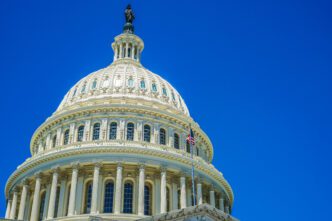Executive Summary
- Commissioner Michael Yaworsky requested legislative support for regulating AI use by insurers.
- New bills (HB 527/SB 202) propose requiring human decision-making for insurance claim denials.
- Regulators cited an instance where an insurer could not explain how its own AI tool functioned.
- House Speaker Daniel Perez designated an upcoming legislative week to focus specifically on AI policy.
TALLAHASSEE — Florida Insurance Commissioner Michael Yaworsky is calling on state lawmakers to establish clear regulatory frameworks allowing for the oversight of artificial intelligence use by insurance companies. Speaking to the Senate Banking and Insurance Committee, Yaworsky emphasized that responsible governance is essential as insurers increasingly integrate AI into their operations.
Yaworsky clarified that he does not oppose the adoption of new technologies but stressed the need for transparency and accountability. He advocated for requirements that ensure a “human in the loop” remains involved in critical processes, particularly to verify that companies understand the systems they deploy. “We do want to provide a path where, if it is being used, it is being used responsibly, known to the regulator,” Yaworsky said.
The push for regulation comes as lawmakers introduce specific measures to protect consumers. Representative Hillary Cassel filed House Bill 527, which aligns with Senate Bill 202 filed by Senator Jennifer Bradley. These proposals seek to mandate that actual human beings, rather than algorithms, make final decisions regarding the denial of insurance claims.
During his testimony, Yaworsky highlighted a concerning instance involving an unnamed health insurance company. According to the Commissioner, the company submitted a filing involving an “off-the-shelf” AI solution. When actuaries asked for an explanation of the AI mechanism’s function, the company reportedly responded that they did not know how it worked.
State House Speaker Daniel Perez has acknowledged the complexity of the issue, designating the second week of December as “Artificial Intelligence Week” in the House. In a memo to lawmakers, Perez noted that while AI offers economic potential, short-term legislative choices could have serious long-term consequences regarding abuse and adverse effects.
Industry representatives maintain that current regulations are sufficient. Paul Martin, vice president of state affairs for the National Association of Mutual Insurance Companies, told a House panel that AI is merely a tool governed by existing laws. “If a practice is prohibited for a human to do on behalf of an insurance company, it is prohibited for AI to do,” Martin stated.
Regulatory Implications
The move by Florida regulators signifies a growing recognition of the “black box” problem in automated administrative decision-making. By seeking legislative backing to audit AI tools, the Office of Insurance Regulation aims to prevent scenarios where claims are denied based on opaque data models without human accountability. This legislative session is expected to test the balance between fostering insurtech innovation and establishing strict consumer safeguards against algorithmic errors or bias.








